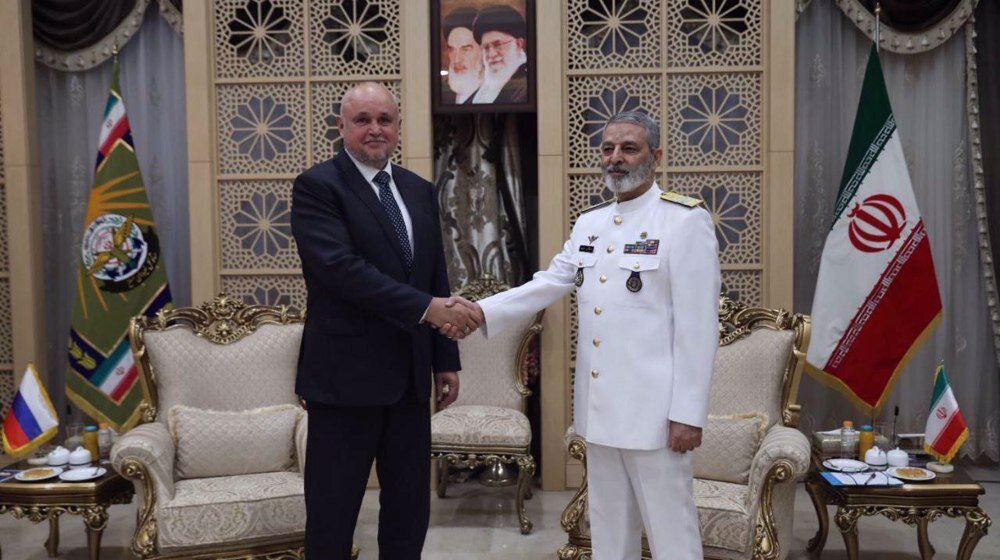Russia showed ‘good and firm’ stance during Israeli-US war on Iran, says top commander

TEHRAN – Iran’s top military commander has praised Russia for its “very good and firm” position at the United Nations and the International Atomic Energy Agency (IAEA) in opposing Israel’s 12-day war against the Islamic Republic in June.
Major General Abdolrahim Mousavi, Chief of Staff of Iran’s Armed Forces, made the remarks on Thursday during a meeting in Tehran with Russian Minister of Energy Sergei Tsivilev, who was visiting with a high-level delegation.
Mousavi said Iran had once again demonstrated to the world that it has never been the initiator of war, stressing that diplomacy remains the preferred avenue for resolving disputes. “Iran considers diplomacy and negotiations the best solutions to the problems,” he noted.
At the same time, the general recalled that Iran’s enemies had often exploited negotiations as a façade for deception. “The enemy used negotiations as a cover for betrayal and launched the imposed war against Iran,” he said.
Mousavi underscored that despite such duplicity, Iran had shown it would not hesitate to defend itself. “Iran’s Armed Forces powerfully gave a firm and crushing response to the United States and the Zionist regime,” he emphasized.
On June 13, Israel launched a blatant and unprovoked act of aggression against Iran, sparking a 12-day war that left at least 1,064 Iranians dead, including senior military commanders, nuclear scientists, and civilians.
The conflict escalated further when the United States intervened by bombing three Iranian nuclear facilities—a move condemned by Tehran as a grave violation of international law.
Iran responded forcefully. Its Armed Forces launched strikes on strategic Israeli sites across the occupied territories and also targeted the al-Udeid air base in Qatar, the largest U.S. military installation in West Asia. By June 24, Iranian counter-operations succeeded in halting the joint Israeli-American assault.
Beyond military issues, Mousavi highlighted the broader opportunities for cooperation between Tehran and Moscow, particularly in the face of severe Western sanctions. “Iran and Russia have numerous capacities to develop cooperation despite the West’s pressure,” he said, pointing to the resilience of the two nations’ partnership.
Energy Minister Tsivilev echoed these sentiments, stressing the need to deepen both economic and defense ties. He expressed support for expanding joint commissions to elevate the level of bilateral cooperation and emphasized that Russia was committed to working closely with Iran across multiple sectors.
Iran-Russia cooperation shows era of unilateralism is over: Pezeshkian
On Wednesday, Tsivilev also met with Iranian President Masoud Pezeshkian. During their talks, Pezeshkian stressed that cooperation between independent states such as Iran and Russia could serve as a model for ending the era of unilateral dominance in global affairs.
“A successful model of cooperation among independent countries, including Iran and Russia, will prove that the era of unilateralism in the world is over,” the president said. “We will be able to lead our countries to development and progress without the need for or dependence on unilateral powers.”
Pezeshkian emphasized Iran’s commitment to fully implementing previously signed agreements in the fields of transportation, energy, and power generation. He called on ministers and experts from both sides to redouble their efforts to ensure rapid progress.
“The Islamic Republic of Iran is seriously pursuing the implementation of agreements between the two countries. There is no obstacle in the way of Tehran-Moscow cooperation,” he stated.
The president voiced hope that regular high-level visits and exchanges of delegations would further strengthen relations between the two “friendly and allied” nations.
For his part, Tsivilev conveyed warm greetings from President Vladimir Putin to the Iranian president and expressed satisfaction with the constructive outcomes of the Iran-Russia Joint Economic Commission. He stressed that Moscow was prepared to move forward with the implementation of bilateral agreements without delay.
“No sanctions or external pressure can impede trade and economic cooperation between Russia and Iran,” Tsivilev said, adding that the two countries had shown resilience in the face of Western restrictions.
Iran and Russia, long considered close and strategic allies, have continued to expand cooperation across economic, political, military, and energy sectors despite sustained Western sanctions.
